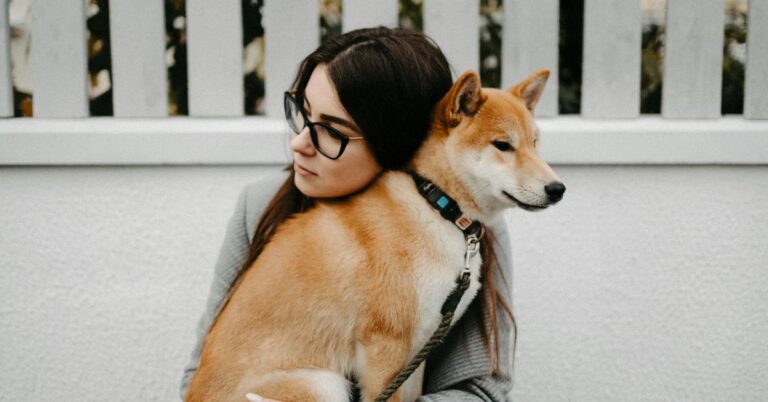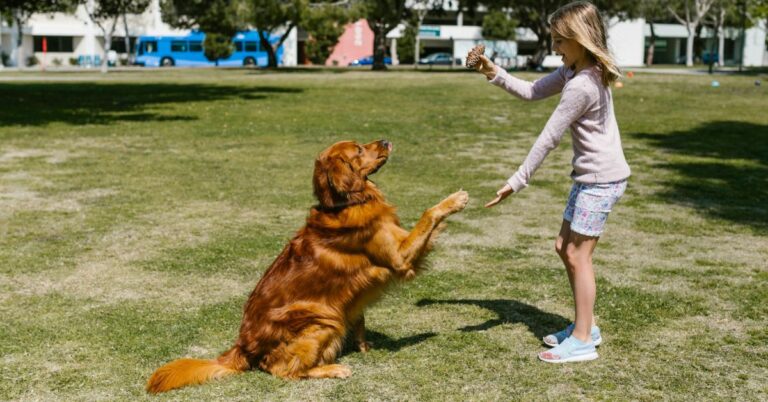15 Peculiar Reasons Dogs Often Lick Air

Dogs engage in curious behaviors that can leave their owners scratching their heads. One such behavior is air licking, which may occur randomly or in specific situations. While sometimes amusing, it’s important to understand the underlying causes of this behavior to ensure your pet’s well-being. Here are 15 fascinating reasons why dogs lick the air.
Hunger or Thirst

Dogs often lick the air when they are hungry or thirsty. This can signal their excitement for mealtime or a tasty treat. Check their food and water bowls to ensure they are adequately nourished and hydrated, especially when they exhibit this behavior right before feeding time or while you’re cooking.
Investigating a Scent

All canines depend heavily on their sense of smell; sometimes, licking the air is their way of investigating an intriguing scent. They might catch a whiff of something unusual or exciting, pulling in more information by licking. This is often a harmless behavior driven by their instinct to explore their surroundings.
Experiencing Anxiety or Stress

Just like humans have physical reactions to stress, dogs do too. Licking the air can be a sign of anxiety or stress, acting as a self-soothing mechanism. If your dog licks the air excessively during tense situations, it could indicate that they feel uneasy and need help calming down.
Experiencing Nausea

Air licking can signal that your dog is feeling nauseous. They sometimes lick the air before or after they feel the urge to vomit, as it helps them produce saliva. When air licking is accompanied by other signs of nausea like drooling or restlessness, it might be time to consult a veterinarian.
Dental Problems
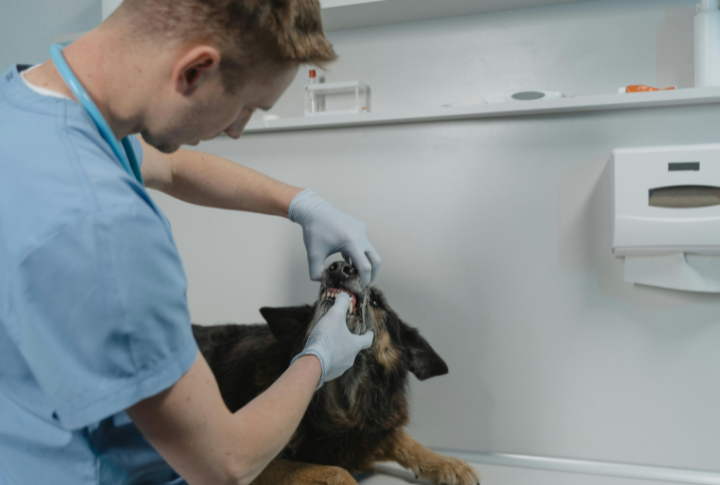
A common reason for air licking is dental discomfort caused by problems like loose teeth or gum disease. When a dog’s mouth hurts, they may lick the air or lips to alleviate the pain. Regular dental check-ups are vital for your canine to catch such issues early.
Foreign Objects
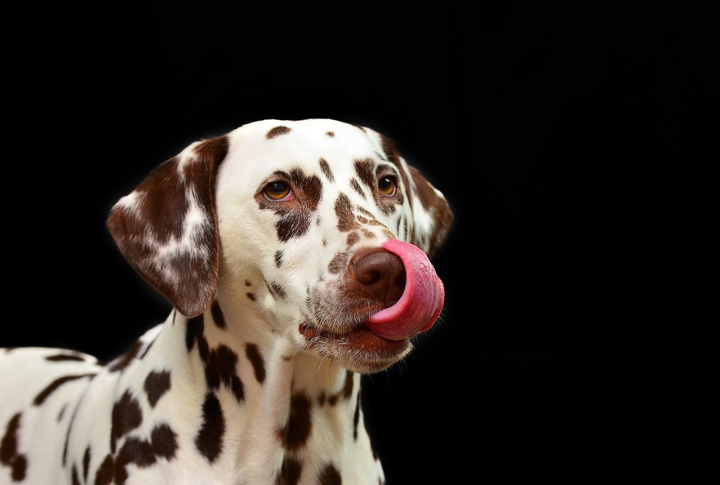
Sometimes, a dog may lick the air due to a foreign object that remains stuck in the mouth or teeth. The discomfort, which can be caused by a toy fragment or a piece of food, can prompt the dog to lick in an attempt to dislodge the object.
Attention-Seeking Behavior

Air licking can be a method pups use to gain their owner’s attention. In case they realize that licking leads to increased interaction or affection from their handler, they may repeat the behavior. To discourage this, ensure that you remain consistent in your responses and provide attention to positive behaviors rather than air-licking.
Cognitive Dysfunction
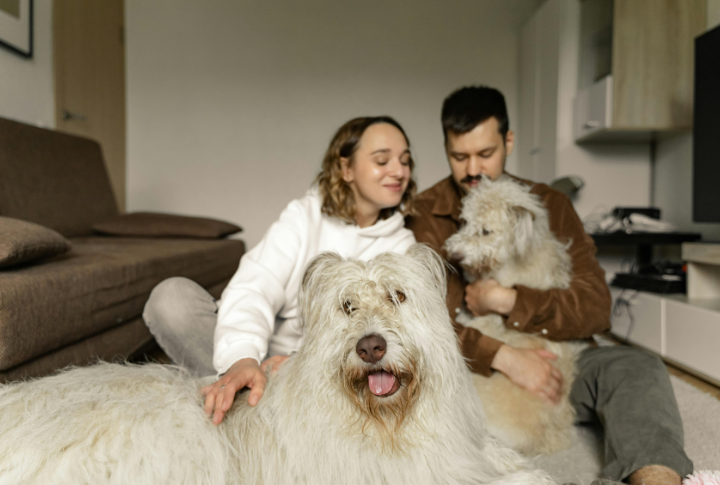
Older dogs may experience cognitive dysfunction, similar to dementia in humans. This condition can lead to disorientation and changes in behavior, including air licking. When you observe a striking increase in such behaviors in your senior dog, consult a veterinarian for more information about the cognitive disorder and how to treat them.
Skin Irritations
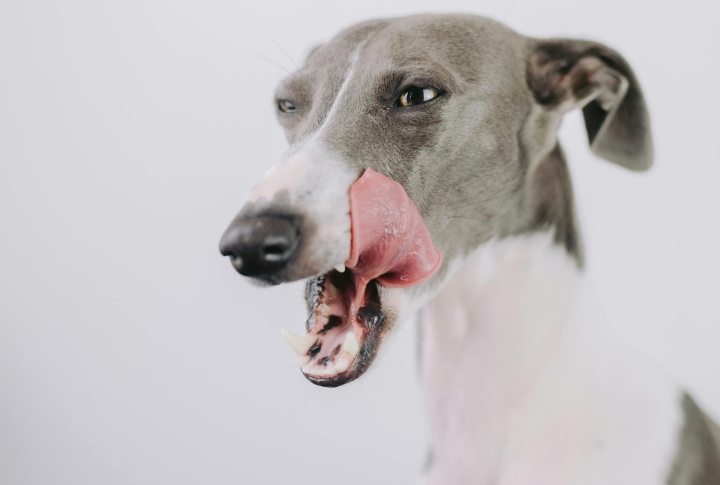
Skin irritations or allergies can lead to uncomfortable sensations, prompting dogs to lick the air. If your dog is also scratching or biting at its fur, it may indicate a skin issue that requires attention. In that case, a trip to the veterinarian is advised to treat the underlying skin condition.
Flehmen Response
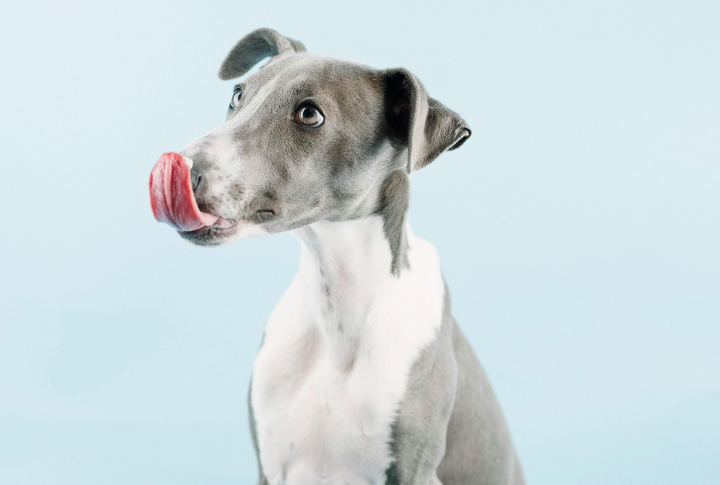
The Flehmen response is a fascinating behavior seen in many mammals, including dogs. When dogs detect strong scents, they may arch their necks, curl their lips, and lick the air to enhance their olfactory reception. This allows them to gather more information about the particular smell, mainly biological scents like urine.
Reacting to Insect Bites or Allergies
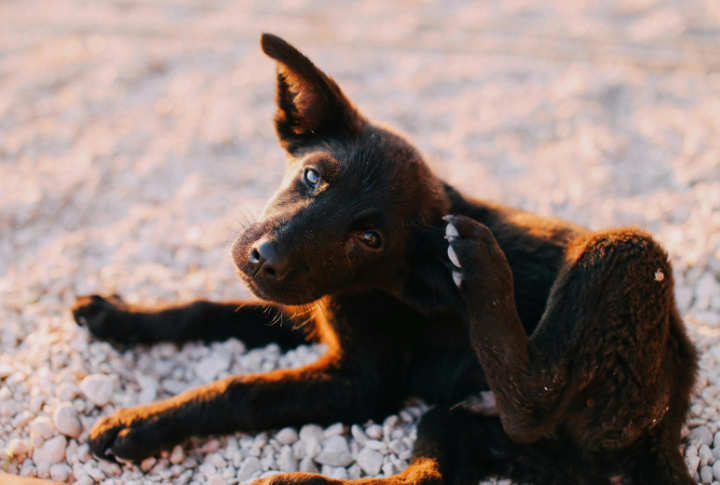
Air licking may be a reaction to irritation from insect bites or stings on the face or nose. You might notice your dog licking the air quite often or nearby objects if they are trying to relieve discomfort from an itch.
Communication of Pleasure
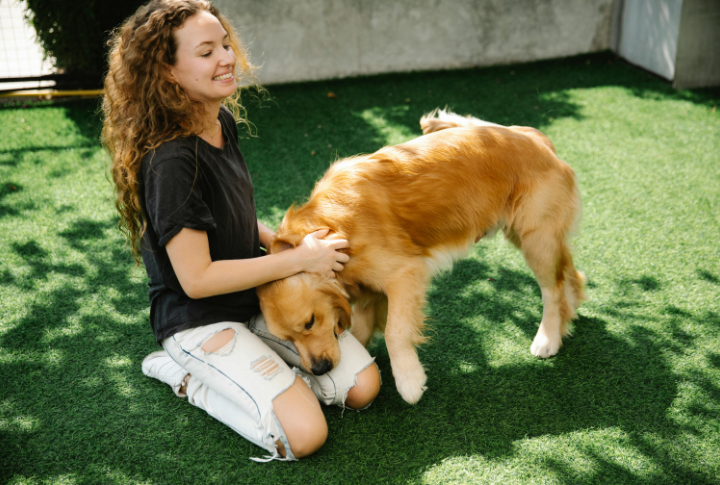
Some dogs lick the air when receiving a satisfying scratch or petting session as a sign of appreciation. When your dog doesn’t have any skin conditions or irritation when you scratch some parts of their body, consider the air licking as their way of saying “Thank you.”
Submission Signals
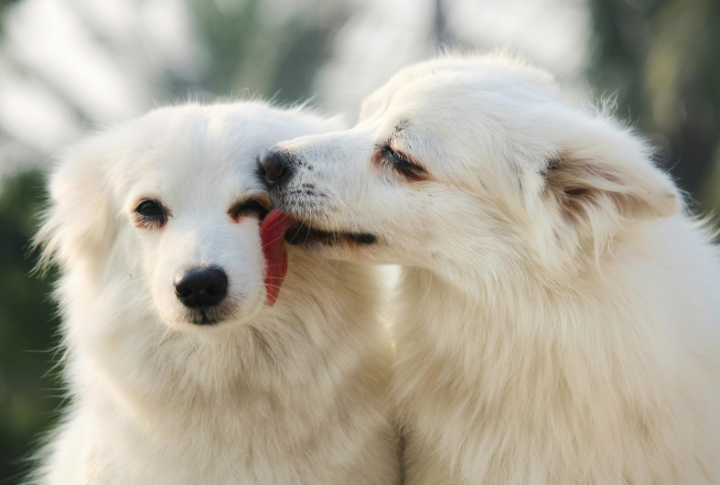
In canine social dynamics, licking is often associated with submission or appeasement behaviors. To show that they are timid and pose no issue, a dog may lick the air when threatened by another dominant dog.
Environmental Triggers
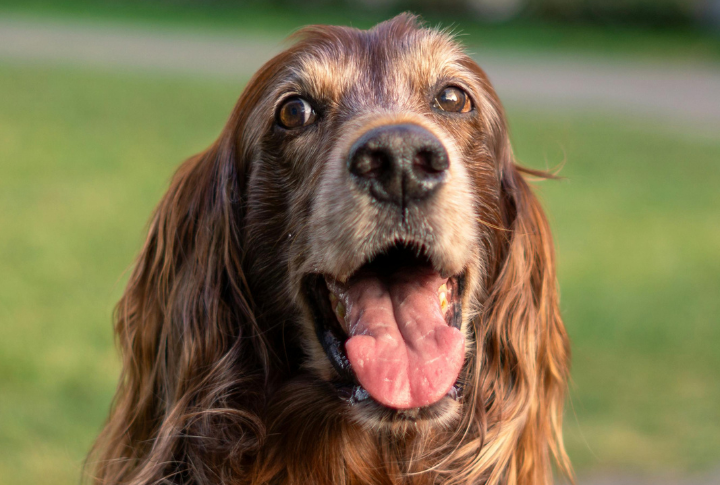
Specific changes in routine and environment can provoke air licking in dogs. For example, exposure to unfamiliar scents or sounds may lead them to lick the air to process these stimuli. Understanding these triggers can help owners create a more comfortable environment for their pets.
Seizures
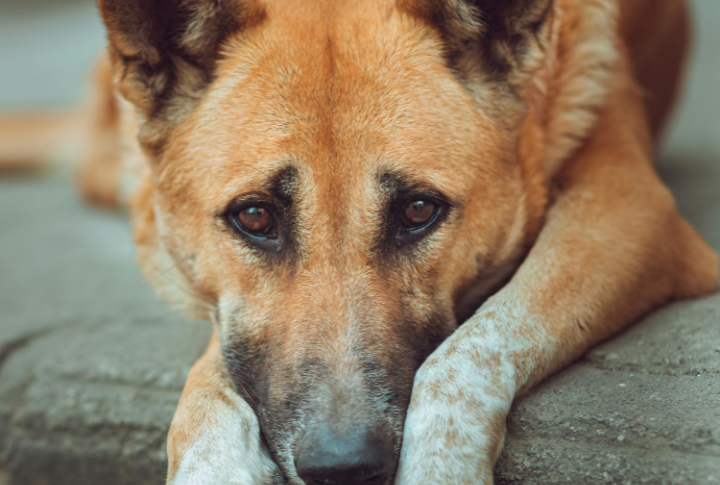
Sometimes, when you see your canine licking the air repeatedly and out of the blue, they could be experiencing a partial or focal seizure. It’s important to contact your veterinarian if you suspect that the air licking is due to a seizure.



